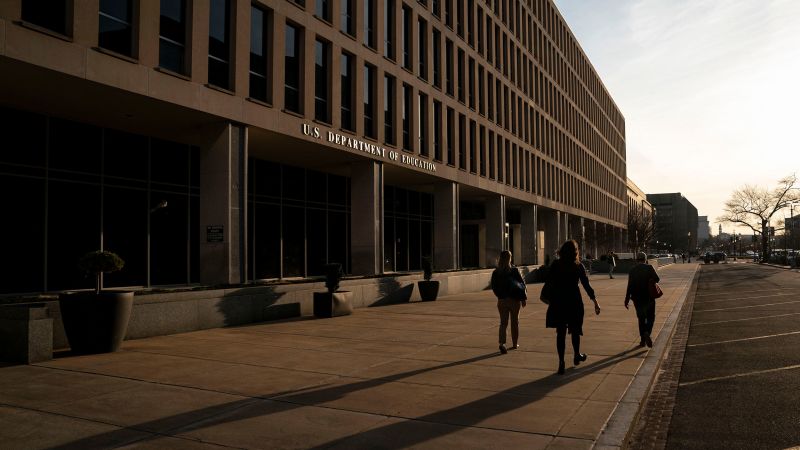Mississippi
Mississippi governor ignores low-budget challengers in GOP primary, focusing on Democrat in November

Rogelio V. Solis/AP
JACKSON, Miss. (AP) — Mississippi Gov. Tate Reeves barely acknowledges his two challengers in next week’s Republican primary — a clear indication that he expects to secure his party’s nomination.
Reeves is already focusing his energy on defeating Brandon Presley, a utility regulator who is unopposed for the Democratic nomination. Reeves brings the power of incumbency, but Democrats are hoping the cousin of rock legend Elvis Presley can break Republicans’ 20-year hold on the governorship.
Reeves’ Republican primary opponents, Dr. John Witcher and David Grady Hardigree, have never held public office. Reeves has won five statewide campaigns since 2003 — two for treasurer, two for lieutenant governor and one for governor.
Advertisement
Article continues below this ad
Unseating any governor is difficult, and the task is even larger when the incumbent has a hefty campaign fund. Reeves is sitting on more than $9 million, while Witcher has spent about $64,000 and Hardigree has spent less than $800.
Witcher, 57, is a physician who founded Mississippi Against Mandates, a group that opposes vaccine mandates and promotes the narrative that COVID-19 vaccinations can be harmful — a position refuted by scientists.
Hardigree, 63, is a military veteran who says God called him to run for governor.
Both criticize Reeves, 49, for signing a law in 2020 to retire the last state flag in the U.S. that included the Confederate battle emblem. The change came during a nationwide racial reckoning after police in Minneapolis killed George Floyd, one of several incidents nationally in which aggressive behavior by police officers ignited protests.
Advertisement
Article continues below this ad
Reeves said for years that if Mississippi were to change the flag, it should only be done by a statewide election. But once it became clear that legislators had enough votes to retire the flag even over a governor’s veto, Reeves said he would sign a law specifying the Confederate symbol was out and a new flag would include the phrase “In God We Trust.”
A commission designed a new flag with a magnolia, and the law required a yes-or-no vote on whether to accept the new design. By a wide margin, voters in November 2020 said yes.
In separate interviews with The Associated Press, Hardigree and Witcher both said voters — not legislators and the governor — should have decided whether to keep the Confederate-themed flag.
“People all across Mississippi felt like that they wanted to vote,” Witcher said.
Advertisement
Article continues below this ad
Hardigree said he’s talked to “a lot of disgruntled folks about the way the flag was handled.”
Reeves’ campaign manager, Elliott Husbands, did not respond to questions about positions taken by Reeves’ GOP primary opponents. And when candidates recently spoke at one of the largest political gatherings of this election year, Reeves did not mention Hardigree or Witcher.
Hardigree said he heard the divine call to run for governor more than 20 years ago but the time wasn’t right until this year.
“You don’t realize until you look back that God was already orchestrating the path that I needed to take,” Hardigree said.
Advertisement
Article continues below this ad
Hardigree said he wants to eliminate Mississippi’s 7% grocery tax — a position that matches Presley’s platform. Reeves has called for elimination of the state income tax.
Witcher said Reeves has not shown enough loyalty to former President Donald Trump, even though Trump campaigned for Reeves in 2019 and Reeves has often praised the former president.
Witcher said he and his wife attended Trump’s rally in Washington on Jan. 6, 2021, where Trump said he believed the 2020 election had been stolen.
“It was a very peaceful movement, parading along, singing, praying, gospel songs, whatever, flag waving, etc. And that’s all we saw,” Witcher said. “When we got close to the Capitol, we turned north to go to our hotel room because we had to use the bathroom. So we got to a hotel room and turned on the TV and watched the rest of it.”
Advertisement
Article continues below this ad
Witcher said Reeves set too many precautions during the pandemic and was too deferential to the state health officer, who urged people to get vaccinated and wear masks.
Reeves issued temporary mask mandates before vaccinations were widely available and after vaccinations were first offered. But by July 2021, Reeves said a federal recommendation for masks indoors was “foolish” and had “nothing to do with rational science.” In 2022, Reeves signed a law saying government agencies cannot withhold services or refuse jobs to people who choose not to get vaccinated against COVID-19.
Mississippi primaries are Tuesday, and candidates must receive at least 50% of the vote to avoid an Aug. 29 runoff. The general election is Nov. 7, with runoffs Nov. 28. An independent candidate for governor, Gwendolyn Gray, will be on the ballot in November with Presley and the Republican nominee.

Mississippi
This week in politics: Lawmakers looking at suffrage bills

Updates on governor vetoes, bills becoming law
House Bill 1 signed into law
Gov. Tate Reeves signs House Bill 1 onto law, eliminating the state income tax.
As the 2025 session draws near to its April 6 conclusion, lawmakers will have dozens of opportunities to restore voting rights to some of Mississippi’s citizens.
As of March 28, about 60 or so bills had been filed with the Legislature requesting restoration of individual voting rights.
The process to file such bills with the Legislature is tedious and often unknown to many people who want to have their voting rights restored after being disenfranchised for committing certain felonies.
First, a disenfranchised person must request a lawmaker, typically from their district, to file a bill with the Legislature. Then, if approved, that bill would be put through the legislative process, including passing several committees, both chambers and by the governor, who has the option to veto a restoration bill.
There was effort early in the session to restore voting rights to certain nonviolent felony holders who had served their sentencing terms, but it died on the House calendar after House Constitution Chairman Price Wallace, R-Mendenhall, said he was given no indication the Senate would take the idea seriously.
Disenfranchisement has its roots deep in the soil of Jim Crow. During the 1890 constitutional convention in Mississippi, the practice was adopted to prevent Black voters from reaching the polls, according to Clarion Ledger records and reporting.
“There is no use to equivocate or lie about the matter. Mississippi’s constitutional convention of 1890 was held for no other purpose than to eliminate the (explicative) from politics,” Former Gov. James K. Vardaman said of the decision years later. Other Southern states soon followed with similar laws, as reported by the Clarion Ledger.
Today, about 68,000 people are disenfranchised in Mississippi, according to the Sentencing Project, a nonprofit. Of them, more than 50,000 committed nonviolent felonies, which would have been the primary focus of the disenfranchisement legislation.
Governor vetoes Medicaid tech bill
Last week, Republican Gov. Tate Reeves vetoed his second bill of the legislative session, a piece of legislation meant to make changes mostly to a supplemental payment program for hospitals participating in the state’s Medicaid program.
Referred to as the Medicaid Tech bill, it typically addresses making changes to the state’s Medicaid program and also makes sure the state’s Medicaid program falls in compliance with federal guidelines.
This year’s bill would, among other things, have expanded some funding for hospitals in that program, Reeves said, and allowed for some out-of-state hospitals to participate in the program, which he said was impossible.
After the veto was read to the Senate on Friday, Senate Medicaid Chairman Kevin Blackwell, R-Southaven, recommitted the bill to committee for further work, which gives lawmaker an opportunity to send the bill back to Reeves with various amendments.
Happenings at the legislature last week
While Reeves has now vetoed two bills this session, plenty of others have made it past his desk and onto the books as new law.
This week alone, Reeves allowed a bill to establish presumed Medicaid eligibility for pregnant women pass without his signature. Reeves also signed a bill into law that established paid parental leave for primary care givers working in government.
Reeves also signed the Safe Solicitation Act, a bill that requires panhandlers to obtain a $25 permit to solicit donations at specific locations from 9 a.m. to sundown.
The bill had seen some debate in the legislature between Republicans and Democrats. Advocates of the bill have said the legislation would help to address safety concerns with homeless people soliciting donations on roadways.
Opponents have said the bill would do nothing to address helping people who are homeless but only punish them for being so.
If anyone who panhandles violated the provisions in the law, they could be convicted of a misdemeanor that carries a fine of up to $500 or be imprisoned at a county jail for no longer than six weeks.
Grant McLaughlin covers the Legislature and state government for the Clarion Ledger. He can be reached at gmclaughlin@gannett.com or 972-571-2335.
Mississippi
79-year-old grandmother in Mississippi arrested

WEST POINT, Miss. (WTVA) — A grandmother faces charges after someone found a toddler walking down a busy road in Clay County, Mississippi.
Deputies arrested Marie Kelley, 79, Thursday afternoon on child abuse and contributing to the delinquency of a minor charges.
Clay County Sheriff Eddie Scott said a motorist saw Kelley’s grandson walking down the road and called 911.
The 2-year-old ran away after Kelley allegedly struck him multiple times with a switch, the sheriff explained.
Scott said the child received numerous marks and welts on his body, including his head.
This resulted in the felony child abuse charge.
Scott said the child is in Child Protection Services’ custody.
Want more WLBT news in your inbox? Click here to subscribe to our newsletter.
See a spelling or grammar error in our story? Please click here to report it and include the headline of the story in your email.
Copyright 2025 WLBT. All rights reserved.
Mississippi
UCLA women's basketball beats Mississippi 76-62 to advance to Elite Eight for first time since 2018

SPOKANE, Wash. — Lauren Betts was so dominant inside that she barely missed, scoring 31 points on 15-of-16 shooting to lead UCLA past Mississippi 76-62 on Friday night and sending the Bruins to the Elite Eight of the women’s NCAA Tournament for the first time since 2018.
The 6-foot-7 Betts added 10 rebounds and three blocks for the No. 1 overall seed, which will face LSU on Sunday for a chance to advance to the Final Four. The Tigers beat N.C. State 80-73 earlier Friday.
Kiki Rice added 13 points and seven assists and was the only other player in double figures for the Bruins (32-2).
Tameiya Sadler scored 14 points for the fifth-seeded Rebels (22-10), who had reached the Elite Eight five times, but not since 2007.
Betts had a similar line – 30 points and 14 rebounds – in the Bruins’ second-round 84-67 victory over Richmond.
UCLA center Lauren Betts, guard Gabriela Jaquez and their teammates celebrate their win against Mississippi in the NCAA college basketball tournament Sweet 16, March 28, 2025.
AP Photo/Young Kwak
Ole Miss beat Baylor on its home floor to reach the Sweet 16 for the second time in the past three years. In 2023, the Rebels upset Stanford in the second round before falling to Louisville.
Betts’ layup put the Bruins ahead 19-10 in the opening quarter, but Ole Miss closed within 21-19 on KK Deans’ jumper.
Deans’ fast-break layup at the end of the first half got the Rebels within 30-29 at the break.
The Bruins opened the second half with an 8-0 run and went up 45-33 on Londynn Jones’ 3-pointer.
Gabriela Jaquez was all alone on a fast-break layup that put UCLA up 63-46 in the final quarter, and Ole Miss never threatened after that.
UCLA’s only two losses this season came against JuJu Watkins and Southern California before the Bruins got their revenge in the Big Ten Tournament final, beating USC 72-67.
The Trojans will also play in Spokane, facing Kansas State on Saturday. It will be their first full game without Watkins, who tore the ACL in her right knee during the first quarter of a 96-59 second-round victory over Mississippi State.
Big-time Betts
Betts scored 16 of UCLA’s 30 first-half points, the second time this season that she’s scored more than half of the Bruins’ points in a half.
She has 93 blocks this season, averaging nearly three a game, and was named the Big Ten’s Defensive Player of the Year.
Copyright © 2025 by The Associated Press. All Rights Reserved.
-

 News1 week ago
News1 week agoMusk Offers $100 to Wisconsin Voters, Bringing Back a Controversial Tactic
-

 News1 week ago
News1 week agoHow a Major Democratic Law Firm Ended Up Bowing to Trump
-

 Education1 week ago
Education1 week agoICE Tells a Cornell Student Activist to Turn Himself In
-

 World1 week ago
World1 week agoDonald Trump signs executive order to ‘eliminate’ Department of Education
-

 News1 week ago
News1 week agoWere the Kennedy Files a Bust? Not So Fast, Historians Say.
-

 News1 week ago
News1 week agoDismantling the Department of Education will strip resources from disabled children, parents and advocates say | CNN
-

 Politics1 week ago
Politics1 week agoStudent loans, Pell grants will continue despite Education Department downsizing, expert says
-

 Movie Reviews1 week ago
Movie Reviews1 week agoTumko Meri Kasam Movie Review: This stirring story could have soared with sharper execution


















